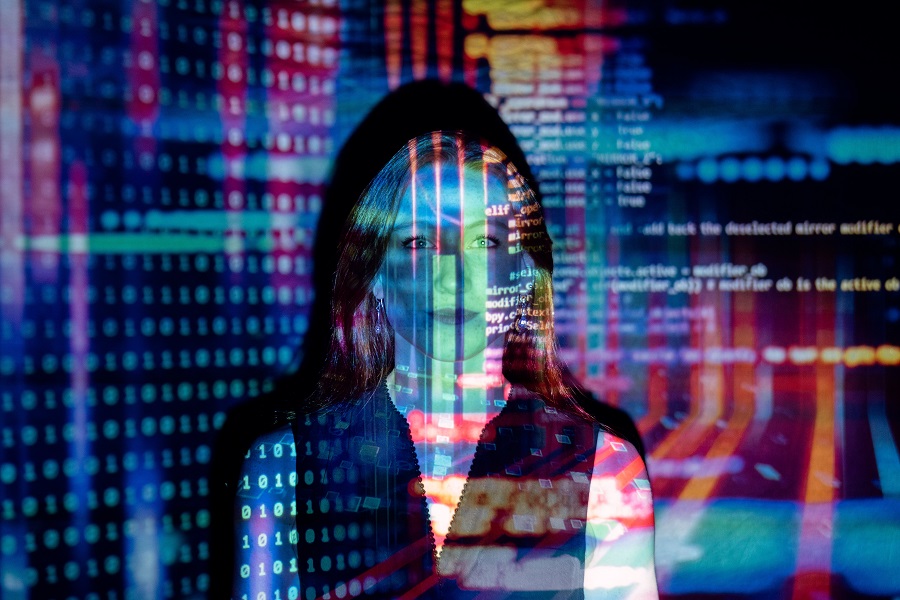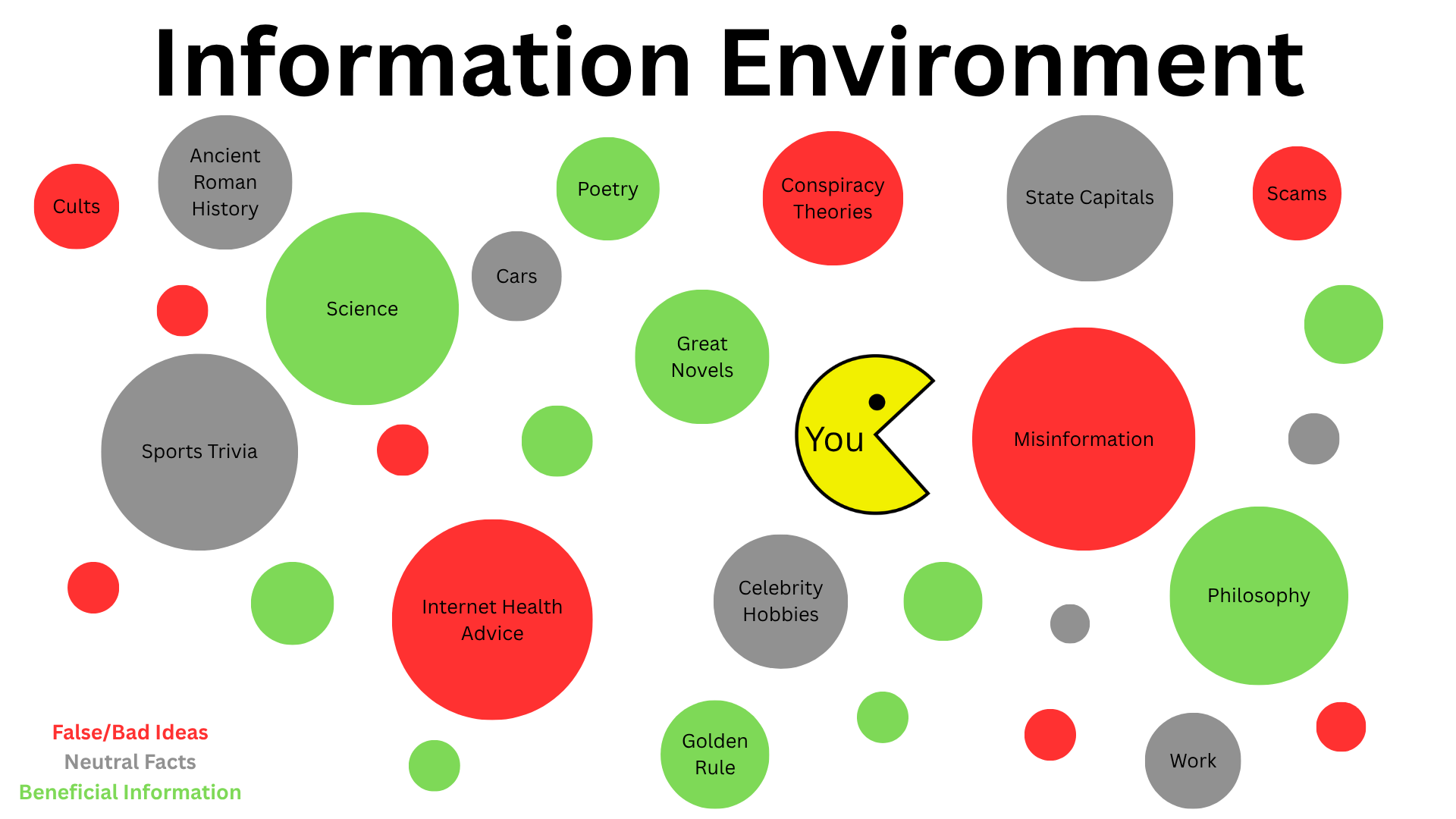Information overload

Our brains are information processing machines. We consume information, build conceptual models from them, and use those models to determine the best course of action that will lead to happiness. The quality of the information we take in will have a significant impact on our ability to find happiness.
"We live in a world where there is more and more information, and less and less meaning." -Jean Baudrillard
Information Overload is a very big problem in the age of multiple platforms with infinite newsfeeds. If the good information is lost in a sea of bad or irrelevant data, it is impossible for the brain to separate them.
Trying Hard Not To Make It Worse
The metaculture wiki tries to solve this problem by delivering the essential information on best practices that you need too make effective life choices in a clear and concise way, and linking it to an overall pattern that helps you relate it to other subjects and create a unified picture of the universe.
Explanations of basic concepts will be provided via links, and the text will be written with the assumption that the reader understands the topics being discussed. This will eliminate the tedious and redundant recitations of basic scientific theories that fill the pages of most popular science books. Another retelling of the Stanford prison experiment or Schrödinger's cat could be potentially coma-inducing.
Media is incredibly repetitive. If you listen to many podcasts or have a variety of sources in your newsfeed, you see the same authors on the same book tours, read dozens of articles based on the same press release, and otherwise waste a lot of time on redundant information. The wiki provides a method for making the important ideas sticky, and giving people a way to catch up on the zeitgeist without drinking from the cultural firehose that is the modern media.
Curated Information
It is vital that your intake of information be curated to ensure that you are not influenced by misinformation, propaganda, pseudoscience, and grift. Our brain will naturally believe whatever it sees, and it takes significant conscious effort to counter that influence. Even when we try to practice critical thinking it is impossible to apply it to every bit of information you encounter. This is especially true with social media newsfeeds, where you may only spend a split second on each meme. It becomes a self-gish-galloping, where the B.S. comes at you so fast that it can't help muddy the waters of your perception of reality. But it's not a political adversary arguing in bad faith, it is you doing it to yourself!
As people become aware of this and start to reject it, there should be a return to using more long-form media with high production values, journalistic standards, editing, fact-checking, and expert recommendations over algorithms. Those who choose this type of information will be smarter, happier, wealthier, and more ethical than those who do not. With any luck, this will lead to leadership that finds ways to incentivize more people to choose good information, such as banning cell phones in schools, or requiring transparency in social media algorithms.
Negativity Bias
The episode of Hidden Brain: Fighting Despair has an excellent discussion of negativity bias and its impact on our happiness.
The mantra of the news is "if it bleeds it leads" because we are naturally more drawn to bad news, since avoiding death is a much higher priority to evolution than anything else. No point trying to find joy and wonder in the universe when you're dead! Since capitalism significantly incentivizes media companies to fight for our attention, this results in a heavy bias towards bad news.
This has the unfortunate by-product of creating significant amounts of unnecessary fear in the culture, and causes people to avoid many things that would make them happy. It also makes people susceptible to authoritarianism.
Information Environments
Consider all of the information that you are likely to encounter day to day. This can be considered your "Information Environment." It is everything in the media and the culture, in our podcasts and books, in our conversations with friends and colleagues, in the zeitgeist. Your beliefs are an inevitable product of that information environment.
The people who control our media platforms know this, which is why they bought them in the first place. Our continued belief in free will keeps us from realizing how much we are influenced by them.
Pollution of the natural environment is a perfect allegory for how our information environment has become polluted by those whose power and profits are threatened by the truth. We all depend on nature to live, and those who profit from polluting it enrich themselves at the expense of everyone. Even the polluters themselves must live in the environment they create. It doesn't matter how rich you are if the air is poisoned, you have to breathe it too.
These are often referred to as information bubbles or filter bubbles, but information environment also includes those who seek out diverse ideas as well as those that don't.

The PAC-Man analogy is apt because like PAC-Man we cannot stop taking in new information. In the game there is no standing still, and in life there is no way to avoid taking in new information. You want to take in as much good information that benefits your happiness and avoid the bad information that detracts from it.
The ratio of good to bad information in the environment determines the difficulty of the game. Social media has flooded our information environment with bad information, since it gives every bad actor in the world access to our attention in order to influence or scam us. The incentives for bad actors to do this far exceeds the ability and resources of anyone looking to stop it. There's no money in scam prevention and fact-checking.
Neutral information doesn't actively harm you, but consuming it doesn't help very much either. It tends to distract the brain from seeking out more beneficial information, but it's generally factual and presented without ulterior motives.
Whichever type of information you consume creates a feedback loop that increases its salience, so you're likely to consume more of that type of information in the future. This is true both in the brain and in the algorithm that decides what you see in your newsfeed.
Casual consumption of misinformation and conspiracy theories is very fraught. If you don't have strong convictions about the truth, it is very easy to be influenced. If you are curious, it's much better to access it through secondary sources that have already applied critical thinking and fact-checking to the claims if you're not going to take the time to do it yourself.
Information on Information
Yuval Noah Harari's book Nexus: A Brief History of Information Networks from the Stone Age to AI offers an interesting view of history and society from the perspective of information processing.
God as a Fractal Compression Algorithm
Our brain is designed to find patterns. When a pattern is found, multiple neural pathways can be combined into a single one, freeing up space for the understanding of new concepts. This is similar to how fractal compression algorithms work. Obviously this explanation is simplified and allegorical, but that's why we have links.
The universal pattern of understanding represented by god acts like a fractal compression algorithm for your entire brain, putting everything you see and learn into a common, holistic framework of understanding.
When your understanding of the rules of the universe closely match the actual universe, the number of exceptions to those rules that you have to remember is reduced, memory is freed, and new information is assimilated and understood more easily.
It is very important to be self-aware and avoid confirmation bias once you have developed a god concept, since it becomes so easy to fit new information into the existing pattern that you can ignore areas where they don't actually match. That's why having self-correction at the heart of your belief system is so important.
Countering Information Overload
While few videos on YouTube relate the topic of information overload to a deity-based fractal compression algorithm, there are many that have good explanations for the information overload we face every day and how to deal with it.
This video is about anti-intellectualism versus brainwashing and in-group biases. Are we getting stupider because of misinformation, social media, failing education, anti-intellectual culture norms, or our tendency to fall into cognitive bias no mater how smart or educated we are?
Danceable Information
The best information is that which inspires action.